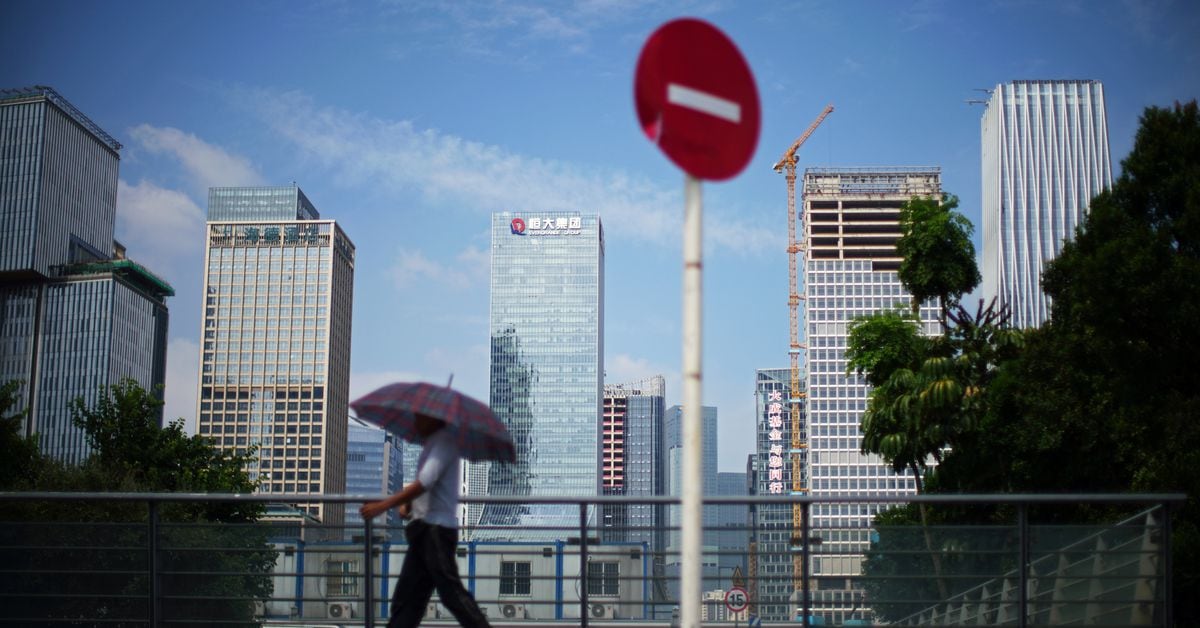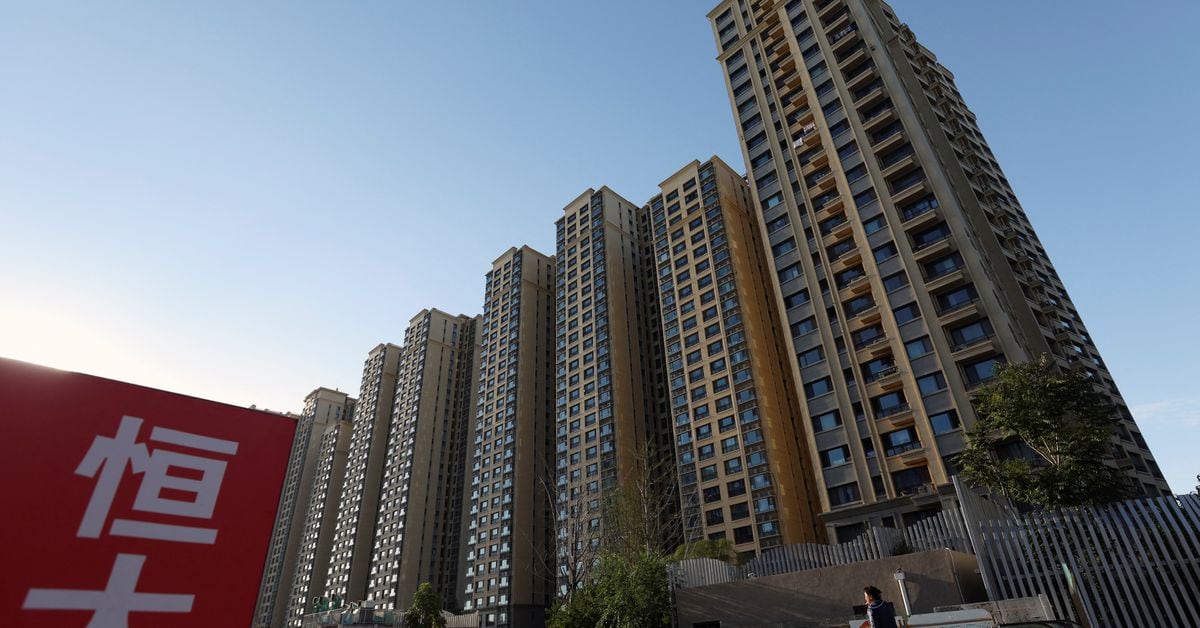- Messages
- 4,967
- Reaction score
- 4,987
- Points
- 308
Beijing’s central business district. China is now too large an economy to export its way out of a downturn, Eswar Prasad writes.
Jade Gao / AFP via Getty Images Text sizeThis feature is powered by text-to-speech technology. Want to see it on more articles?
Give your feedback below or email audiofeedback@wsj.com?subject=Articl...der%20Feedback.About the author: is a professor at Cornell University, senior fellow at the Brookings Institution, and author of The Future of Money.
With growth stalling and the economy slipping into deflation, Beijing is under pressure to stem the rot. Measures to stimulate the economy could help. But to lift growth durably and not simply create more risks will require much bigger changes. The longer the government waits to act, the harder its task will become.
China’s economy has been hit hard. The property developer Country Garden missed bond payments this week, The Wall Street Journal reported, amid a broader unraveling of the property sector. Demand for China’s exports fell 14.5%in July compared to a year earlier. And, most of all, households and private businesses seem to have lost confidence in the direction of central government policies and the government’s ability to guide the economy amid mounting domestic and external challenges.
Much as Beijing talks about supporting private enterprises, its actions have cast a chill on the part of the economy that is essential for attaining its stated economic ambitions. Private-sector investment has collapsed and growth in household consumption has weakened. Unemployment rates, particularly for younger workers, have risen sharply and threaten social stability.
China’s long-standing problems are coming home to roost. Many are a consequence of the government’s own policies. Take the property sector, a mainstay of the economy that has for long been counted on to boost growth and which now directly or indirectly accounts for nearly a quarter of annual gross domestic product. Housing constitutes a substantial fraction of household wealth and land sales are a key source of revenue for local governments. This has led to massive oversupply in some cities, with a lot of housing held for speculative reasons. Now that the government is trying to rein in speculative activity in this sector, some developers and banks that lent to them are in financial distress, household wealth has taken a hit, and local governments are having to tighten their belts.
These problems are being compounded by unfavorable demographics, with fertility rates falling and the population aging rapidly, a creaking financial system, and dismal productivity growth. China is far from realizing its ambitions of becoming technologically self-reliant and capable of generating significant innovations domestically.
The stark reality is that the private sector, especially small and medium enterprises, will be crucial for China to generate productivity and employment growth. The government’s desire to generate more domestic innovation and switch to higher-technology, higher-value-added industries cannot rely on the doddering state enterprise sector. So Beijing’s attempts to talk up its support for the private sector while cutting down to size high-flying private enterprises, particularly in the technology sector, sends wrong signals at the wrong time.
On a recent trip to China, I sensed a profound disconnect between the views of government officials and the private sector. Officials in Beijing seemed relatively sanguine about the economy’s prospects and talked favorably about the private sector. By contrast, entrepreneurs and businessmen I encountered spoke openly about the government’s wayward policymaking. The public takedowns of some highly successful entrepreneurs have cast a chill. President Xi Jinping advanced a “common prosperity” initiative in 2021 aimed at reducing inequality. In practice, it is seen as a new means to restrain the private sector.
China is now too large an economy to export its way out of a downturn, particularly when the world economy is sputtering. Macroeconomic stimulus is part of the solution to the current growth malaise. But it has to be complemented by longer-term structural measures to revive productivity, particularly by taking credible measures to encourage rather than restrain private enterprises.
Monetary stimulus, including lower interest rates, could create financial risks. In any case, it might get little traction if households and businesses lack confidence to spend rather than save. Well-targeted fiscal stimulus could help to boost household consumption in the short run as well to rebalance growth in the longer term. Income-tax cuts, higher expenditures on social programs, and some direct transfers to low income households could support growth in the short run and help increase the role of consumption rather than (often wasteful) investment in driving growth.
These measures need to be supplemented with financial sector and state enterprise reforms, lifting of restrictions on labor mobility, and a clear commitment to a vibrant private sector. Improvements in corporate governance and risk management at state-owned banks could help direct more resources to private enterprises.
The biggest challenge the government faces, though, is dispelling concerns about a turn toward a state-dominated economy with even the private sector under increasingly tight control of the party apparatus.
Xi might view the state sector more favorably than the private sector, but it will not deliver the economic results he wants. Local governments in some of the country’s most dynamic provinces have absorbed this lesson. The results are clear, with those provinces’ embrace of private enterprises through supportive policies paying off in high growth.
Now Beijing needs to convince entrepreneurs that it will not just pay them lip service but will support them and not deem successful entrepreneurs to be enemies of the state. Unless it faces up squarely to this challenge, all the other measures will accomplish little.
Guest commentaries like this one are written by authors outside the Barron’s and MarketWatch newsroom. They reflect the perspective and opinions of the authors. Submit commentary proposals and other feedback to ideas@barrons.com.


